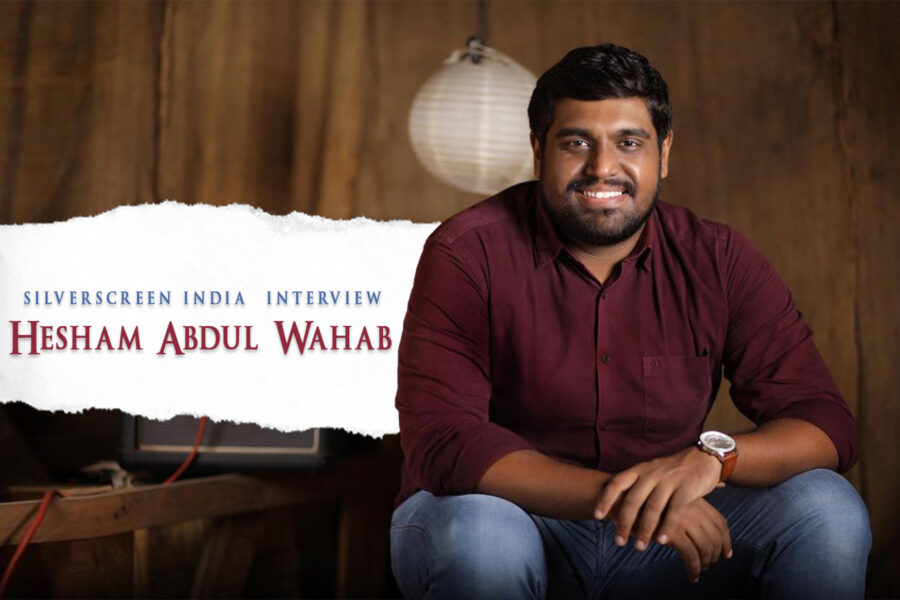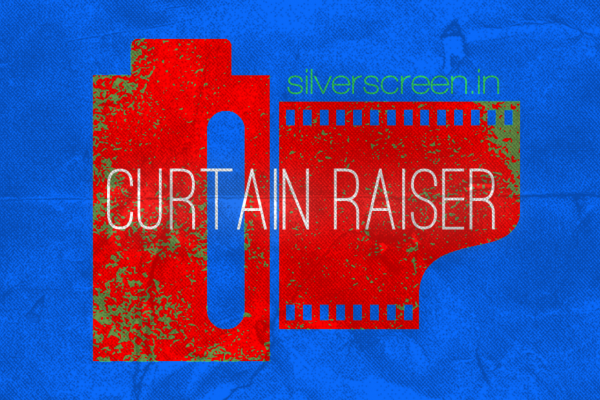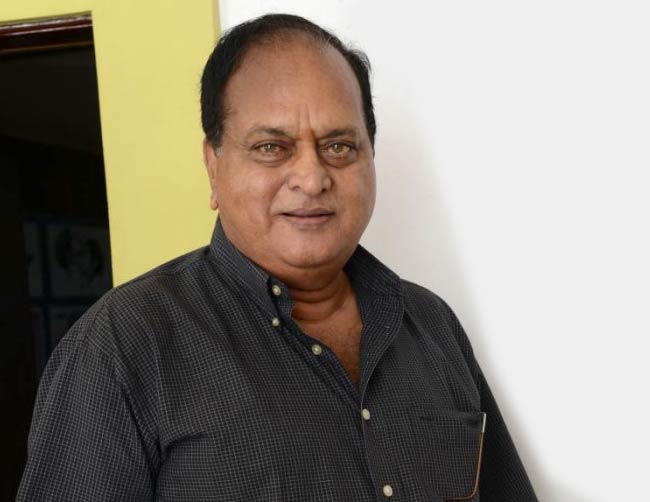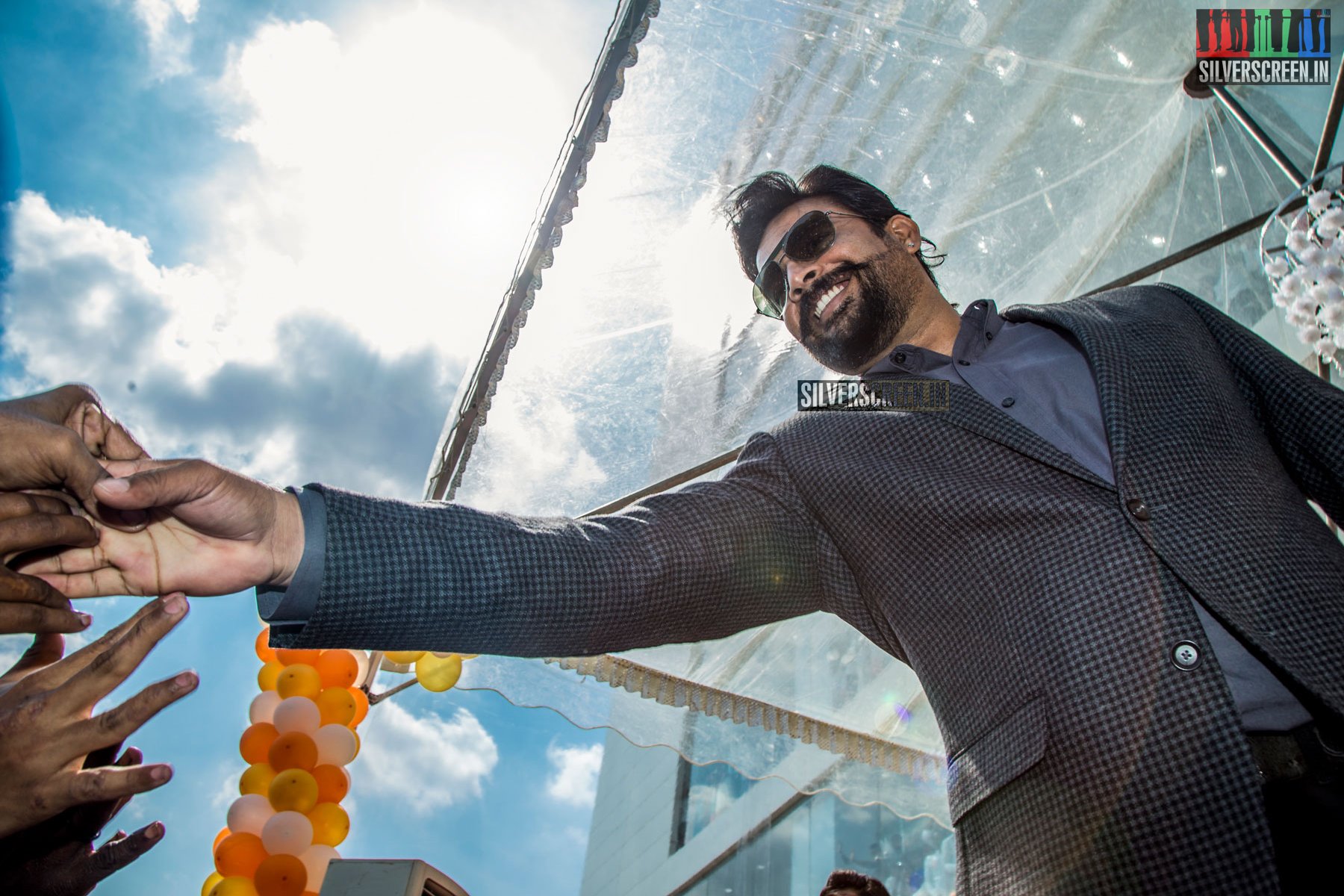Hridayam marks Hesham Abdul Wahab’s tenth outing as a music director. He has become one of the most talked-about composers in recent times, after creating the 15 super-hit tracks in the film and scoring the Vineeth Sreenivasan-directorial starring Pranav Mohanlal, Kalyani Priyadarshan, and Darshana Rajendran.
However, for Hesham himself, music has been an integral part of his life since childhood. He believes that it has shaped his life to such an extent that his compositions reflect and define the person he is.
Having completed his schooling in Saudi Arabia in 2007, Hesham came to Kerala to participate in a reality show called Idea Star Singer on Asianet. Later, in 2009, he did his diploma in Sound Engineering in Chennai and in 2011, he emerged as the title winner of Sangeetha Mahayuddham, a music reality show on Surya TV. He completed his graduation in Music Production from SAE Institute in Dubai in 2012 and began working as a sound engineer for British musician Sami Yusuf the following year.
Hesham’s first album, Qadam Badha, was released in 2015. That same year, he also made his debut as a music director with the film Salt Mango Tree. He then went on to compose songs for films like Cappuccino, Ole Kanda Naal and Madhuram.
Although it has been over two months since the release of Hridayam, the songs continue to play on loop in many of our playlists. In this conversation with Silverscreen India, Hesham speaks about working on Hridayam, music, his life, inspirations, and more.
In many interviews, you have said that AR Rahman is your inspiration and that his songs have been a part of your life. After the success of Hridayam, you happened to meet him. Can you tell us about your experience of interacting with ARR?
It was very overwhelming. When I first began listening to ARR’s music, I realised that I wanted to be someone who could create music and move millions of people. When I met that person, who was the reason for me pursuing my passion, and received appreciation from him, I felt like I was on top of the world!
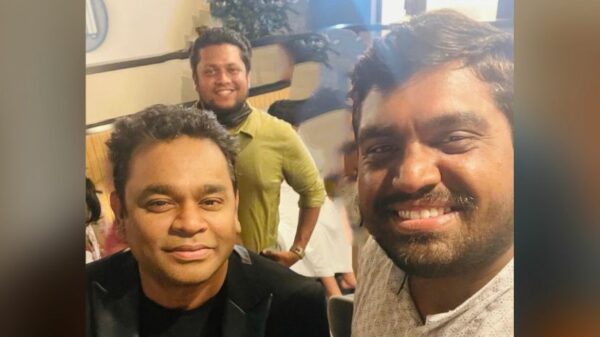
How did Hridayam happen to you and what was it like to work with filmmaker Vineeth Sreenivasan?
I joined the team of Hridayam in 2019. When I was recording Vineeth’s voice for a song in another film, I had asked him if he could recommend my name for any project that he was a part of. I never imagined that he would call me to work on his own directorial. I think my Sufi album Qadam Badha was what made Vineeth approach me. It’s all by God’s grace.
Do you have any memorable experiences of working on the film that you’d like to share with us?
The entire journey of Hridayam is close to my heart. But, our trip to Turkey to record the local instruments there was the most memorable part for me. We recorded instruments like Bagalama, Kanun and Zurna for almost seven to eight songs, including Darshana, Pottu Thotta Pournami and Minnal Kodi. I feel that collaborations with foreign musicians and the incorporation of different instruments from beyond boundaries, opens up a lot of new avenues in music.
Further, working in this film was a different experience as Vineeth himself is musically inclined. His musical sense and knowledge helped me in creating a unique musical landscape aligned with his vision as the director.
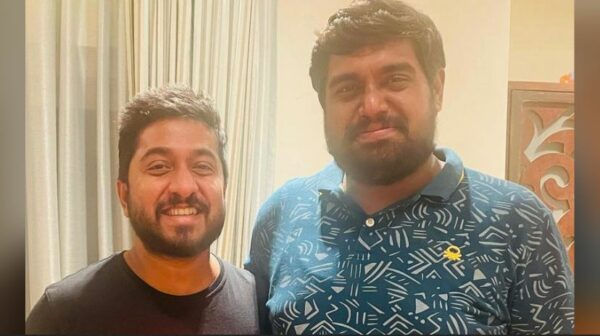
What is your biggest takeaway from working on Hridayam?
The overall experience has been one of great learning for me. One such learning was that working on tracks in the presence of the director helps in bringing out the best output. I understood how to work as a team. It was wonderful the way Vineeth would narrate the story and the situation to me and how he placed me in a comfort zone to bring out the best in me. We mostly worked collaboratively. Of course, some work needs to be done alone, but for the most part, working together helped us in creating such an output.
Hridayam is an important milestone in your music career. Can you tell us how your life was before Hridayam and how it changed after the album’s release and subsequent success?
Before Hridayam, it was difficult for me to pitch songs and music that I wanted to work on as I was only involved in small projects. Now, after Hridayam’s release, I feel like I am in a space where I can approach technicians and filmmakers whom I aspire to work with.
Aside from being a music composer, you are also a teacher. Can you tell us about your academy LIVE with MUSIC and what you teach there? How has teaching impacted your music journey?
At our LIVE with MUSIC Academy (located in Kochi), I provide training for music aspirants in software used for music production. Aside from that, I also provide music therapy to autistic children.
Teaching has helped me learn new things myself. As part of the teaching process, I need to keep myself updated about new gadgets, technological advancements, software, etc. I, then, implement and incorporate these things that I have learned in my own work.
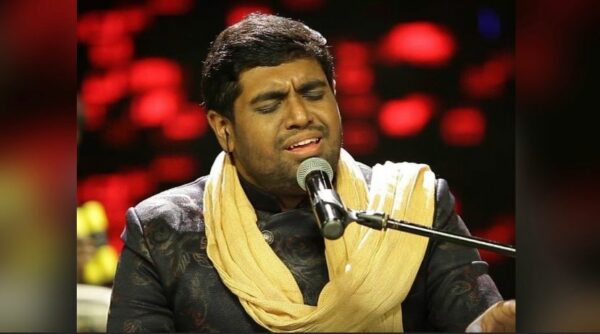
You have previously spoken about being spiritually inclined and how that connects with your music. Can you explain how spirituality and the creative process are interconnected for you?
The idea of spirituality differs from person to person. For me, it is the oneness between me and the higher power that I believe in. I think the music that comes to me is through this higher energy. So, whenever I compose, I believe every bit of music that comes out of me is actually an extension of the spiritual energy that I trust in. While composing, I enter a state where I forget the physical being and am fully immersed in the art. This, to me, is spiritual connection. It is very personal and is always there when I sit down to compose music.
You have mentioned that you went through a difficult phase before Hridayam happened. But here you are inundated with appreciation and praise for your work in the film. Had you given up then you would not be here now. How did you manage to stay afloat while things were difficult?
Giving up is very easy. It was very difficult to hold on when the environment that I was in was not positive. However, against all odds, I decided to stay sincere to the path that I had chosen. Everyone has a reason for waking up to a new day. I get up every morning to work on music. That drive, just wanting to create music, was a source of inspiration to me. I was immersed in my music and it kept me alive.
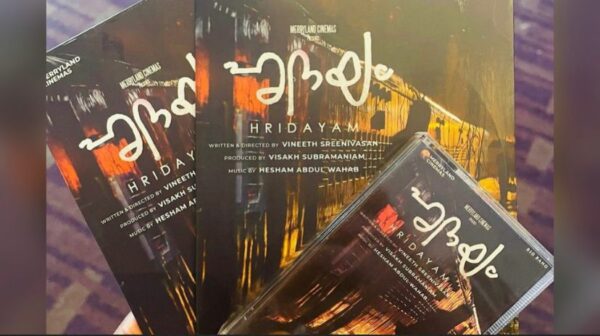
Hridayam brought back the nostalgic trend of audio cassettes and CDs. Think Music even partnered with a manufacturer in Japan to import them as audio cassette manufacturing has become obsolete in India. How did your team come up with this idea?
As I mentioned before, Vineeth and I had gone to Turkey to record some instruments for the songs in Hridayam. There, we came across a few shops selling CDs and cassette tapes. That was when we thought about bringing back the culture with Hridayam’s album.
In the beginning, we only had 8 to 9 songs. During the second wave of Covid-19, Vineeth began reworking the script and he decided to incorporate music into certain scenes. However, it was only at the end of the composing session that we realised we had 15 songs.
After Think Music came on board, we decided to go ahead with the cassette and CD idea as we had enough material. It was a herculean task and we could only pull it off with the support of Think Music.
You started your career as an independent musician. How do you view the current indie music scene? Do you have any plans to make independent music again in the future?
I think the indie music field is growing stronger day by day. There are a lot of artists making great contributions to this sector and I believe it can co-exist with the film music set-up. I have a plan to start my second independent album. I am still thinking about the theme for it. Hopefully, I will start working on it after completing my committed projects this year.
What are your upcoming projects?
Recommended
My next release will be Philip’s, starring actor Mukesh and directed by Alfred Kurian, who co-wrote Helen. I have also signed five to six other films in various languages such as Malayalam, Tamil, and Telugu. The official announcements regarding these are yet to be made so I am not at liberty to talk about them.
Finally, do you have any personal favourite songs that you keep going back to?
Yes, of course! ARR’s compositions, Yeh Jo Desh Hai from Swades and Jashn-E-Bahara from Jodha Akbar, are big favourites. I keep going back to these two songs. They just make me feel grounded and remind me that there is a long way to go. I feel calm while listening to these tracks. Aside from these, the work of artists like Hans Zimmer, Johnson, Vidya Sagar, Michael Jackson and Backstreet Boys are among my favourites.
